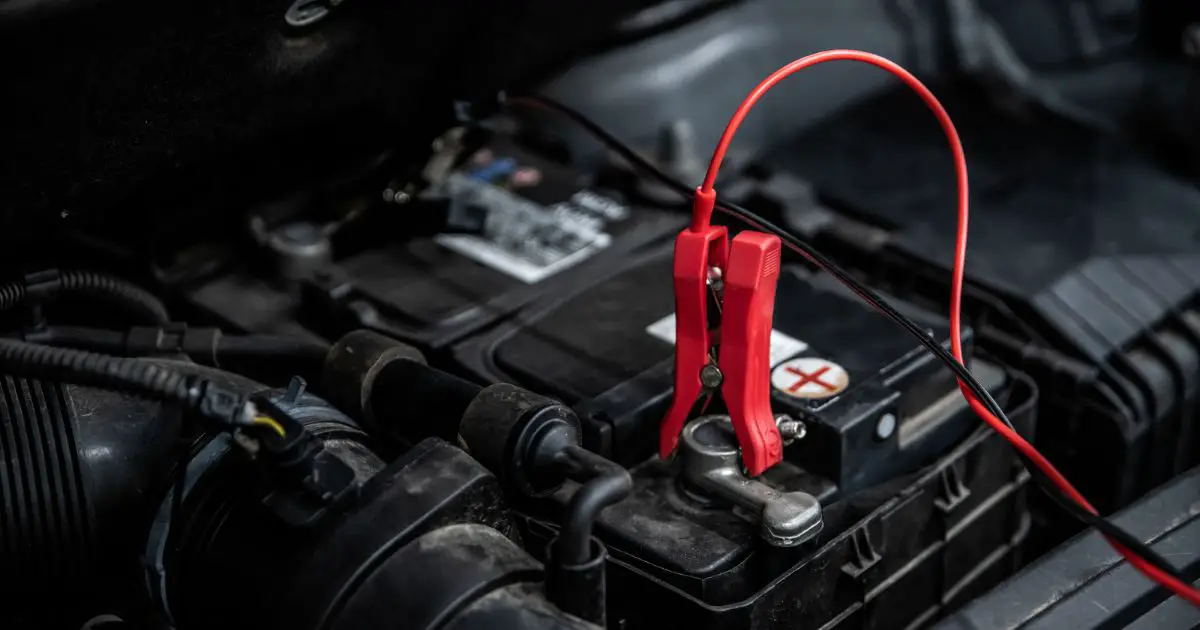Many of you may be wondering if portable generators have circuit breakers. Of course, they have circuit breakers, much like standby generators. These breakers are instrumental in keeping the electrical connections safe. And they prevent electrical fires.
But what types of breakers are there in portable generators? And what does it mean when the circuit breaker keeps tripping?
Do Portable Generators Have Circuit Breakers?
Every heavy-duty power source has circuit breakers. These breakers are pretty much standard electrical code. And without them, any such product would become illegal and extremely unsafe to operate.
A circuit breaker is a simple switch that is normally closed (short-circuited). However, when your generator draws on a load beyond its capacity, the switch opens, breaking the circuit.
Such a switch is called a circuit breaker. Circuit breakers ensure your generator is not overloaded. For example, your generator is 1,000 watts, a load of 2,000 watts or higher will trip the circuit breaker.
Types Of Circuit Breakers and Other Protection:
Your generator does not use just one circuit breaker. Instead, most generators have two types of breakers: the main breaker and the outlet breakers.
Main Breaker:
The main breaker is in almost all generators. This breaker “trips” (shuts off power) when the current is beyond the generator’s capacity. It shuts off the supply to all the outlets when it trips.
If your generator has one or two outlets, the main breaker and the outlet breaker will be the same. But on more advanced generators with more outlets, the main breaker is most useful when the generator is overloaded.
Outlet Breaker:
It’s quite impractical to shut off power to all the outlets every time there’s a high load. For one thing, if one outlet is overloaded, all the other outlets shut off.
To counter this, some manufacturers include outlet breakers for each separate outlet. This is useful considering that you would still want the other outlets to work when one outlet is overloaded. Another important thing to consider is each outlet has a separate wattage rating. Therefore, the HVAC system outlet shouldn’t trip as they handle different wattages.
However, while these outlets have their separate ratings, the rating never exceeds that of the generator. This is why manufacturers also include a main breaker. The main breaker trips when any outlet has more load than the generator’s capacity.
GFCI Receptacle:
Aside from circuit breakers, another essential piece of equipment that protects your generator is the Ground Fault Circuit Interrupter (GFCI).
An electrical leak occurs when the current “leaks” out from the device and chooses a different path to the ground. Electrical leaks can be hazardous. The leaking electricity may pass through pieces of metal that you may come into contact with. A GFCI receptacle prevents that from happening.
AFCI:
Another common circuit protection element is the Arc Fault Circuit Interrupter or AFCI. AFCIs detect arcing between any two contact points.
If you don’t know, arcing is when two points that carry high currents come incredibly close to each other. When this happens, the current “jumps” from one contact to another, resulting in a spark or electrical arc.
Arcs in circuits mostly occur when the screw terminals on a switch or outlet are not fully tightened down. This leads to the two contacts in the switch not being completely connected, resulting in unwanted arcing.
An AFCI breaker protects against this and saves you from power loss, ground faults, and short circuits.
Portable Generator Circuit Tripping and Reasons:
Did you pull the circuit breaker backup only for the power to go out again in a few minutes? There are many reasons why your circuit breaker trip. These include:
Overloading:
One of the most common causes of circuit breaker tripping is overloading. Overloading occurs when an appliance draws too much current from the generator. This can have significant consequences on the generator, so the circuit breaker trips, keeping you and the generator safe.
While the most common cause, overloading may not be obvious at first. Connecting a power air conditioner to a weak generator will cause it to overload. But often, it’s not just one load that leads to excess. Instead, it’s often connecting too many loads. After all, the more loads there are, the more power the generator has to provide.
Most circuit tripping occurs a bit before the generator is completely overloaded. This is to prevent the circuit elements, including the wires, from heating up.
Short Circuit:
A short circuit is the next most likely cause of your circuit breaker tripping. Short circuits occur when the current travels through the hot wire back to the neutral wire directly. Without any impedances to the current flow in the circuit, the wires heat up, leading to a fire hazard.
Unlike overloading, short circuits can be deadly.
That’s why circuit breakers trip when there is a short circuit.
However, that’s just the beginning of the problem. First, you must identify where has the short circuit occurred. Normally, it happens due to faulty wiring or when the hot wire is connected directly to a piece of metal. However, in most cases, it’s usually a fault with the appliance, not the generator.
This is why the diagnosis of a short circuit is quite hard. But don’t let it faze you. If you do not cater to the problem, it can lead to severe consequences.
GFCI Tripping:
Aside from the circuit breaker tripping, you may also find your GFCI tripping. To recap, a GFCI is a circuit element that protects against accidental grounding and electrical leakage.
This is usually the case when the insulation around your wires has worn out. It causes the electricity to leak through other metal components.
Another common cause of a GFCI trip is having too many appliances connected to the generator.
Water in the system can cause leaks, which roots the electricity to take an alternate path to the ground.
AFCI Tripping:
AFCI tripping is also a common occurrence, especially in newer generators that have AFCIs. AFCIs trip when there is arcing in the circuit. Loose connections in the circuit cause arcing. The loose wires can get so hot due to arcing that they can cause house fires.
The simplest way to fix AFCI tripping is to screw down the switch terminals properly. However, depending on the situation, the loose connection could be anywhere on your wire. This is especially true of wires that are old and have worn out. Therefore, it’s best to have professional assistance.
Do portable generators have circuit breakers?
Yes, portable generators do have circuit breakers. Circuit breakers help keep the generator safe for use. In addition, circuit breakers prevent short circuits and electrical hazards.
Why does my circuit breaker keep tripping?
A circuit breaker that keeps tripping is usually the sign of either overloading or a short circuit. Overloading and short-circuiting both cause the breaker to trip. And if left unattended, it will cause the breaker to trip numerous times.
Why is my GFCI tripping?
GFCI tripping occurs when there is a ground fault. A ground fault is when the insulation has worn out, and a lot of the electricity is leaking. GFCI tripping is easy to diagnose and can be fixed by replacing the wires.
Can loose connections cause tripping?
Yes, especially if you have an AFCI in your generator. Loose connections create electrical arcs. At times, these can be harmless. But with the right amount of power, they can be deadly. An AFCI will constantly trip as long as there is a loose connection. To fix this, start by tightening all the screw terminals. If the problem persists, you’ll need professional help.
Why does a breaker trip when no load is connected?
Breaker trips when there is no load are common when there is a ground fault or short circuit directly to the ground.
Conclusion
A tripping circuit breaker is more cause for concern than it is an inconvenience. And a circuit breaker that trips constantly is a major red flag.
Contrary to what you might think, portable generators have the same level of protection as standby generators. They feature main and outlet circuit breakers as well as GFCIs and AFCIs. In addition to that, your generator may have other forms of protection, such as surge and overcurrent protection.
Understanding why the circuit is tripping is important. Remember: it’s not the breaker trip that’s concerning; instead, why the breaker is tripping.

